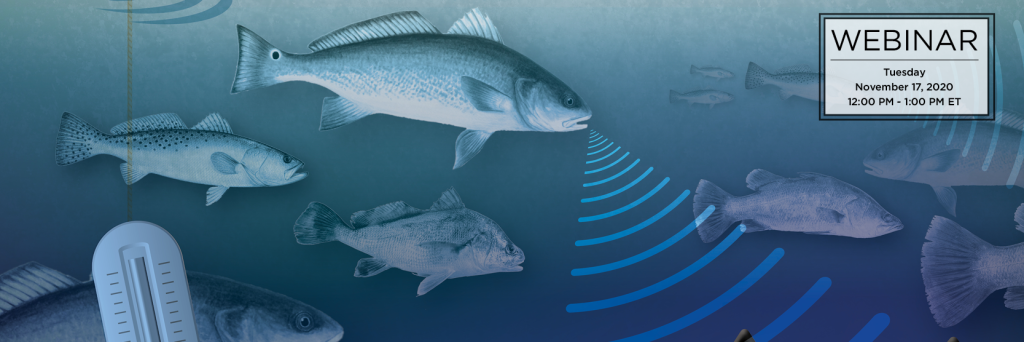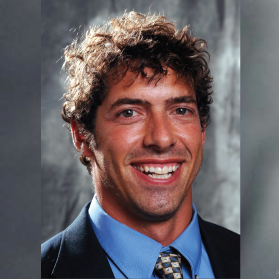
Join us on November 17 at 12 PM for a webinar by Dr. Eric Montie, University of South Carolina Beaufort. Dr. Montie will discuss how passive acoustics can provide information on the ecological response of estuaries to climate variability and can assist in monitoring fish reproductive output of an estuary. Click here to reserve your spot.
Abstract
The Estuarine Soundscape Observatory Network in the Southeast monitors underwater sounds using passive acoustic recorders in four estuaries of South Carolina. Soundscape data are used to monitor animal behavior at multiple levels of biological complexity (i.e., from snapping shrimp to fish to marine mammals) and at time scales ranging from minutes to years. The soundscape approach allows the ability to ‘eavesdrop’ on key behaviors of marine animals that can change rapidly or gradually in response to environmental changes and human impacts, thus providing a measure of resilience or shifting baselines for economically important or protected species. This webinar will discuss how passive acoustics can provide information on the ecological response of estuaries to climate variability and can assist in monitoring fish reproductive output of an estuary.
Click here to reserve your spot.
Meet the Presenter

Dr. Eric Montie’s current research focuses soundscape ecology within estuaries. He earned a B.S. degree in Zoology at the University of Rhode Island in 1993, and then embarked upon post-baccalaureate studies in Biochemistry at Harvard University. He then received a M.S. degree in Environmental Toxicology at Clemson University in 1999. In 2006, Dr. Montie completed his PhD in the Massachusetts Institute of Technology / Woods Hole Oceanographic Institution Joint Program in Biological Oceanography. Currently Dr. Montie is at the University South Carolina Beaufort as an Associate Professor in the Department of Natural Sciences. In 2013, he received a Breakthrough Rising Star award by USC Columbia for outstanding research and was awarded tenure and promoted to the rank of Associate Professor in 2016.
Related news

SECOORA Request for Proposals for a Data System Development, Operations, and Maintenance Service Provider
SECOORA seeks a Data System Development, Operations, and Maintenance (DMAC) service provider to act as a strategic partner while maintaining the current SECOORA Data System. Proposals are due to SECOORA by 5:00 PM ET, March 31, 2026.

Plankton Perfect: Using Imagery to Document Microscopic Marine Life
Dr. Enrique Montes is working to understand how plankton respond to changes in the ocean by capturing high resolution imagery with advanced technology. This work is funded by the Marine Biodiversity Observation Network (MBON) to use novel techniques like the Continuous Particle Imaging and Classification System (CPICS).

SECOORA Community Spotlight: Craig Harris
When Craig Harris signed on as the Emergency Management and Resiliency Coordinator for the city of Wilmington, North Carolina, he brought with him knowledge of water level sensors. SECOORA worked with Craig to install a water level sensor at the Love Grove Bridge in Wilmington, a site prone to flooding.